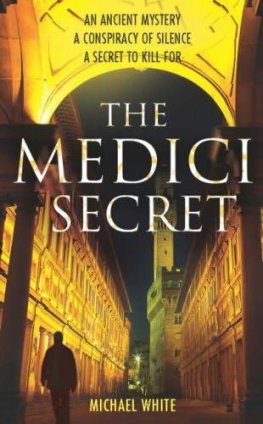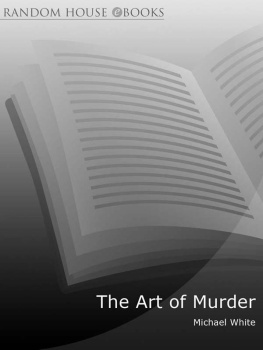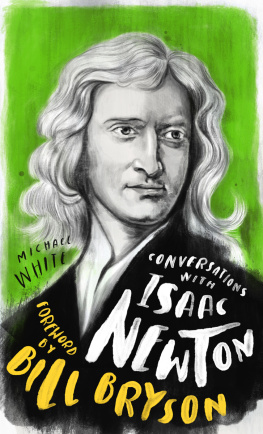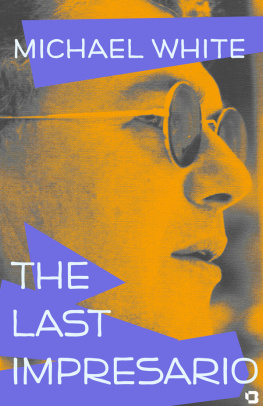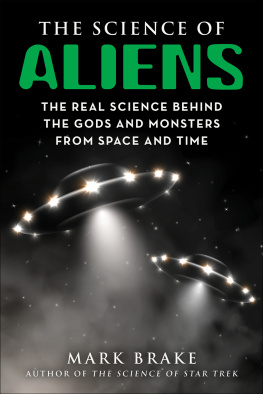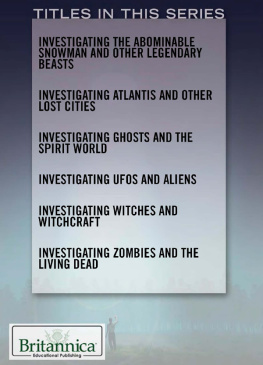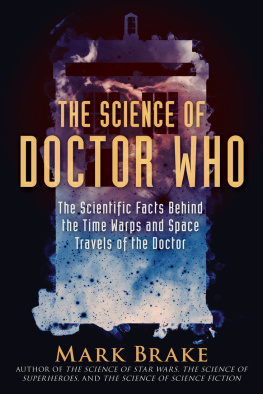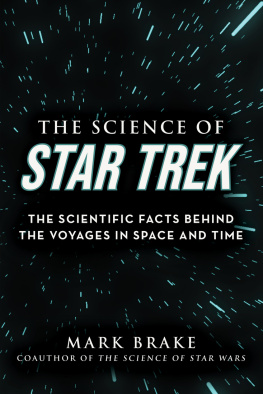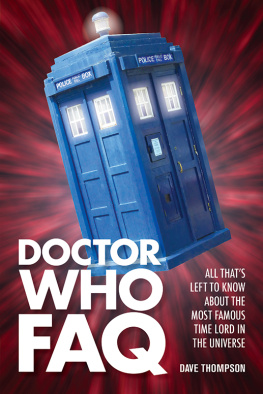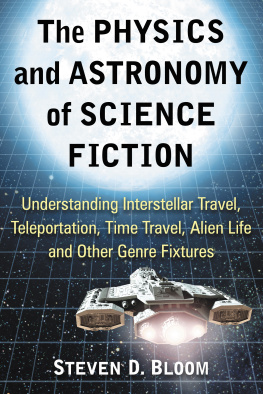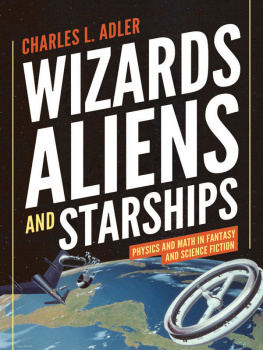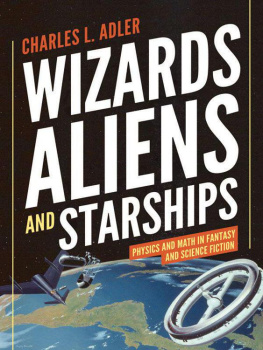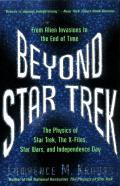A Teaspoon and an Open Mind
BY THE SAME AUTHOR
C. S. Lewis: The Boy Who Chronicled Narnia
The Fruits of War
Machiavelli: A Man Misunderstood
A History of the 21st Century (with Gentry Lee)
The Pope and the Heretic
Tolkien: A Biography
Rivals
Thompson Twin: An 80s Memoir
Leonardo: The First Scientist
Super Science
Isaac Newton: The Last Sorcerer
Life Out There
Alien Life Forms
Mind and Matter
The Science of the X-Files
Asimov: The Unauthorised Biography
Breakthrough (with Kevin Davies)
Darwin: A Life in Science (with John Gribbin)
Einstein: A Life in Science (with John Gribbin)
Stephen Hawking: A Life in Science (with John Gribbin)
Newton
Galileo
John Lennon
Mozart
MICHAEL WHITE
A Teaspoon and an Open Mind
The Science of Doctor Who
ALLEN LANE
an imprint of
PENGUIN BOOKS
ALLEN LANE
Published by the Penguin Group
Penguin Books Ltd, 80 Strand, London WC2R 0RL, England
Penguin Group (USA) Inc., 375 Hudson Street, New York, New York 10014, USA
Penguin Group (Canada), 90 Eglinton Avenue East, Suite 700, Toronto, Ontario, Canada M4P 2Y3
(a division of Pearson Penguin Canada Inc.)
Penguin Ireland, 25 St Stephens Green, Dublin 2, Ireland (a division of Penguin Books Ltd)
Penguin Group (Australia), 250 Camberwell Road,
Camberwell, Victoria 3124, Australia (a division of Pearson Australia Group Pty Ltd)
Penguin Books India Pvt Ltd, 11 Community Centre,
Panchsheel Park, New Delhi 110 017, India
Penguin Group (NZ), cnr Airborne and Rosedale Roads, Albany,
Auckland 1310, New Zealand (a division of Pearson New Zealand Ltd)
Penguin Books (South Africa) (Pty) Ltd, 24 Sturdee Avenue,
Rosebank, Johannesburg 2196, South Africa
Penguin Books Ltd, Registered Offices: 80 Strand, London WC2R 0RL, England
www.penguin.com
First published 2005
1
Copyright Michael White, 2005
The moral right of the author has been asserted
All rights reserved
Without limiting the rights under copyright
reserved above, no part of this publication may be
reproduced, stored in or introduced into a retrieval system,
or transmitted, in any form or by any means (electronic, mechanical,
photocopying, recording or otherwise), without the prior
written permission of both the copyright owner and
the above publisher of this book
A CIP catalogue record for this book is available from the British Library
EISBN: 9780141911281
Contents
For Michael Downer and Nicolas Peglitsis the best teachers I ever had
Introduction
I had to make some optimistic assumptions to meet the revenue target. In Week Three, were visited by an alien named Dutox Inag who offers to share his advanced technology. Dilbert
In the late 1990s, my wife Lisa and I did the clichd thing of leaving London to raise our kids in the country. We lived in an old barn just outside a town called Headcorn in Kent, and within a few months of being there we discovered that Tom Baker lived in the next village. I recall fondly the time Lisa came back from town to say, Youll never guess who I saw in Headcorn Doctor Who! At least once a month she would bump into the Doctor in the local butchers shop or the florists, where she would overhear his often hilarious banter with the shop assistants.
Every Doctor Who fan has a favourite Doctor, and mine were Tom Baker and John Pertwee. The choice of favourite is always connected with ones age. If youre a child of the seventies then you will almost certainly have the same favourites as me. But actually my interest in Doctor Who goes further back, to the mid 1960s, when as a very small child I was petrified by the Cybermen and the Daleks and hid behind the sofa as soon as that familiar synthesizer tune (courtesy of the BBC Radiophonic Workshop) started playing every Saturday evening.
Later, I became a fan of science fiction and read every Asimov novel, everything by Arthur C. Clarke and Robert Heinlein and others, but always retaining a soft spot for Doctor Who. In some ways the programme was not very good science fiction. It didnt have the depth and accuracy of the novelists I liked, it wasnt so big-budget as Star Trek, and at the age of ten or eleven I found it easier to relate to Will Robinson in Lost in Space. But Doctor Who always had a sense of humour, and this was brought out best by Tom Baker with his scarves and jelly babies.
I have also always loved the quirkiness and the very British aspects of the programme. It is as British as cups of tea, the Kinks and losing in the final stages of the World Cup. Im sure this is part of its enduring appeal. The Doctor has always been cool whether he wears frilly shirts and drives around in a yellow roadster or sports a leather jacket and trainers. The way he deals with problems, Heath Robinson style, blending the exotic with the mundane and clutching victory from the jaws of defeat, is one of his most attractive traits.
Science fiction is a much-maligned form, and literary purists turn their noses up at it (while at the same time shamelessly nicking ideas from the genre). But science fiction has a place of enormous importance in the lives of many people, most especially all those brave souls who become scientists. No less a figure than Stephen Hawking has said that he was originally drawn to study science because of his interest in science fiction. Many of the great science-fiction authors of the twentieth century did the same and then went on to become writers themselves who in turn led generations of young people to science.
It is obvious why this should happen. Science fiction is really super-science, science taken further than its present state, imaginative extrapolations into an unknown future. Science fiction is liberating. It acts as a vehicle for escapism, of course, but more than this, it opens up a bigger vista, a more exciting reality than our often humdrum lives can offer. By moving into real science we try to recapture the excitement and the glamour of what we have read in novels.
The great thing about science is that it is always changing and growing. Along with the fact that science is based on experiment and analysis, it is this ability to develop that really separates it from mere belief systems. But, even though science evolves, every good scientist goes with the flow.
An example of this is the changing view of the nature of human genetics. Until very recently it was believed that the only useful part of the genome were the genes themselves. But scientists have now found that what was originally called junk DNA usually viewed as merely the padding between genes may be vitally important. Indeed these regions of the genome have been preserved in every species studied and have not changed over millions of years, implying that they are somehow protected or preserved for a special purpose.
This is almost certainly an exciting and important discovery, but it is also quite possible that in a year or two or five another scientist or team of researchers will develop a subtle refinement of this work or even perhaps discover something that refutes it. This is the way of science and one of the things that keeps it vital and alive. It does not mean scientists have lost their grip on reality or that science is in any way subjective. It simply means that scientific thinking develops. As Asimov once said: When people thought the Earth was flat, they were wrong. When people thought the Earth was spherical they were wrong. But if you think that thinking the Earth is spherical is just as wrong as thinking the Earth is flat, then your view is wronger than both of them put together.
Next page


